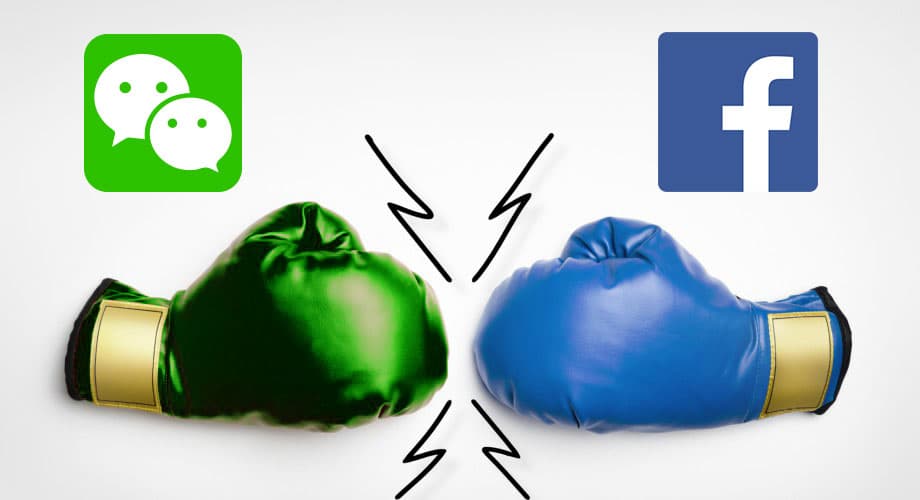WeChat payment is the superstar feature of WeChat, the one which makes it stand out amid a sea of messaging APPs.
So it’s no surprise Facebook tried to copy it. But did it succeed?
Here is a timeline of the feature updates of Alipay, WeChat Payment, and Facebook Payment
What Facebook payment looks like
In early 2015, Facebook launched a new Facebook payment feature. The feature is quite similar to WeChat payment, enabling P2P transfers between users
To many, this seemed like a revolution: Facebook was finally catching up with WeChat.
But how do Facebook payments perform?
Facebook payment seems like an attractive concept. But the service is facing a steady collapse of its revenues for the last few years.
In their 2015 annual report, Facebook shows a rather pessimistic perspective on their online payment prospects:
“We currently generate all of our Payments revenue from developers that use Facebook on personal computers, and we expect that our Payments revenue will continue to decline in the future as usage of Facebook on personal computers continues to decline. […] If the Facebook-integrated applications fail to grow or maintain their users and engagement, whether as a result of the continued decline in the usage of Facebook on personal computers or otherwise, if developers do not continue to introduce new applications that attract users and create engagement on Facebook, or if Facebook-integrated applications outside of social games do not gain popularity and generate significant revenue for us, our financial performance could be adversely affected.”
A pretty bleak outlook for Facebook payment, as even Facebook seems to despair to turn it around.
Why is Facebook payment failing?
There are several reasons we can find as to why Facebook payment is failing where WeChat is succeeding.
Red packets
The iconic function of WeChat Payment which made it an overnight success is the use of “red packets”. There’s a strong tradition in China to exchange money on Chinese New Year’s eve, and WeChat Payment (by combining the social nature of its network and its P2P money transfer functions) made this process a digital one.
In 2017, 14.2 billion red envelopes were sent via WeChat, a 75.7% YOY growth!
This is what Alibaba’s chairman Jack Ma described at the time as a “Pearl Harbor attack on Alipay”
Slow pace of innovation
For all the technical mastery of Facebook, payments doesn’t seem to be their focus. P2P transfers were released in early 2015. It took another 2 years for Facebook to announce a major innovation to their payment ecosystem: group payments in April 2017, a feature WeChat launched in 2015.
This is to be contrasted with WeChat payment which is continuously innovating: red packets, integrations with coupons & architecture of a complex “Wallet” feature providing services such as e-commerce, booking taxis, movie tickets, train & plane tickets and now even shared bikes!
Distributed architecture
Facebook has broken-down its architecture in several APPs, each with a very specific purpose (sharing with friends on Facebook, writing personal messages through Messenger or Whatsapp, sharing images via Instagram).
As such, Facebook users do not tend to think “outside the box” in terms of what a specific APP can do. They wouldn’t expect Facebook or Whatsapp to handle payments, because that’s Paypal’s territory.
WeChat is a very different ecosystem: everything happens within WeChat, and the APP started with just providing messaging and added features gradually. Users are used to seeing the APP evolve and gain new capabilities, and trying these new functions out.
Conclusion
Facebook’s payment revenues are declining, but its ads revenues are doing great: they grew 51% YOY for the last quarter of 2016. This means that, for the foreseeable future, Facebook will keep collecting user data and monetize it through advertising, for lack of a better business model.
Western mobile payment market has a huge growth potential. US only have 34% of digital users making mobile purchase, vs 67% in China. Facebook appears to be failing to capture this market, so who will?
